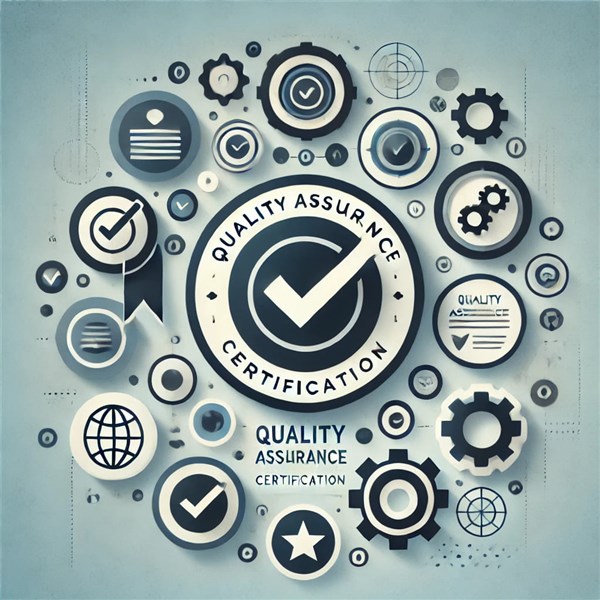Unable to find what you're searching for?
We're here to help you find it
In today’s fast-paced and competitive job market, professionals across industries are turning to certification programs to gain a competitive edge. For those in quality assurance (QA), certification isn’t just a bonus—it’s increasingly becoming essential. A Quality Assurance Certification can help open the door to better job roles, enhance your promotion potential, and improve job security. In a field where precision, reliability, and efficiency are highly valued, certification demonstrates both competence and commitment to maintaining high standards. Let’s explore why obtaining a QA certification is critical for your career advancement and professional development.
In QA roles, technical skills are foundational. Certifications validate that you possess specific skills and knowledge that meet industry standards. Most certifications in QA cover a variety of areas, such as software testing methodologies, defect management, quality control processes, and compliance standards.
For instance:
Obtaining one or more of these certifications signals to employers that you’re not only knowledgeable in QA fundamentals but also committed to maintaining these skills. It can differentiate you from other candidates, positioning you as a capable professional who brings immediate value.
In a competitive job market, QA professionals with certifications are more likely to stand out to employers. Certification demonstrates that you’ve invested in formal training to develop expertise in the field, making you a stronger candidate. Companies often prefer certified candidates for critical QA roles, such as:
Each of these roles requires advanced skills and knowledge in quality management, testing frameworks, and process improvement. With certification, you increase your chances of being considered for these higher-level roles.
Professionals with QA certifications often command higher salaries. Certification not only makes you a more appealing hire but also enables you to negotiate better pay. Data from industry surveys indicates that certified QA professionals earn more than their non-certified peers, particularly those with specialized certifications like Six Sigma or ISTQB.
The potential for an increased salary, combined with more frequent promotion opportunities, can quickly offset the initial investment in obtaining a QA certification.
With advancements in AI, automation, and software engineering, the role of QA professionals continues to evolve. Automation can streamline many quality control tasks, but there remains a strong demand for skilled QA experts. Employers recognize that certified professionals are often more adaptable to change, more familiar with new tools and methodologies, and better equipped to work within innovative frameworks.
Certification provides:
By demonstrating proficiency and a commitment to professional development, certified QA professionals often enjoy greater job security, as they’re viewed as integral to adapting and maintaining high-quality standards through change.
Many certification programs and professional QA organizations, such as the American Society for Quality (ASQ), offer opportunities for members to connect with peers, mentors, and industry leaders. Networking can introduce you to new career opportunities, collaborative projects, and insights into the latest trends and technologies in QA.
Some ways certification enhances networking include:
These connections can be invaluable for long-term career growth, enabling you to stay engaged with others in your field, which may lead to career opportunities you might not have encountered otherwise.
Quality assurance is a field that relies heavily on analytical thinking, problem-solving, and attention to detail. Certification programs are designed to build these skills through rigorous coursework and exams that cover methodologies, risk analysis, defect tracking, and process improvement.
For instance, Lean Six Sigma certifications teach analytical tools and processes to reduce waste and improve quality, while the Certified Software Quality Engineer (CSQE) program teaches advanced problem-solving techniques relevant to QA. Both are essential in improving the efficiency and quality of software development processes, as well as in manufacturing, healthcare, and service sectors. These enhanced analytical skills will not only make you a better QA professional but will also help with career advancement into roles like QA Manager or Process Improvement Specialist.
In roles involving quality assurance, trust and reliability are fundamental. Certification acts as a quality seal for your skills, reassuring employers that you adhere to recognized standards of practice. This can be particularly important in client-facing or leadership roles, where your credibility reflects on the organization’s reputation.
Certification builds a foundation of credibility, which can accelerate your career and broaden your range of responsibilities.
Conclusion
Investing in Quality Assurance Certification is a strategic career move that can offer numerous benefits, from opening doors to new job roles and promotions to enhancing your salary potential and job security. Certification is more than just a mark of technical skill; it reflects dedication, adaptability, and a commitment to upholding high industry standards. In today’s dynamic job market, where both technical competence and continuous learning are paramount, QA certification can position you as a top candidate, primed for success and professional growth. Whether you're looking to deepen your knowledge, advance in your career, or increase your earning potential, quality assurance certification can provide a pathway to achieving your professional goals.
In conclusion, a Quality Assurance Certification can prove to be a game-changer in your career progression. With the rising demand for QA professionals, there has never been a better time to get certified and take your career to the next level.

Aarav Goel has top education industry knowledge with 4 years of experience. Being a passionate blogger also does blogging on the technology niche.










